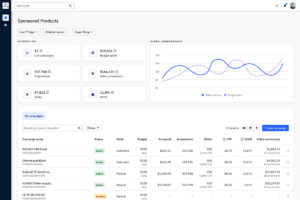
Avalara and Censuswide surveyed retail leaders and consumers ahead of a busy holiday shopping season and today share their findings on how retail changed in 2022 and how consumers and retailers are adjusting.
Retail changed in 2022 — How consumers and retailers are adjusting
For many businesses, holiday sales start earlier and earlier every year. Before the pumpkins from Halloween are thrown away and the smoke from Bonfire Night clears, retail shops are decked with tinsel and strewn with sale tags. But with the possibility of a recession looming in the U.S. and ongoing complications from Brexit in the U.K., the busiest shopping season is looking a little different this year. In a 2022 holiday readiness survey commissioned by Avalara and conducted by Censuswide, we surveyed 1,002 U.K. and U.S. retail business leaders and 2,026 consumers to get a better look at how they’re reacting to this year’s volatile peak season.
How people are spending
Because of inflation, consumers aren’t seeing their dollars (or their pounds) stretch quite as far as they have in previous years. Though holiday sales in the U.S. are expected to grow between 6% and 8% over last year (National Retail Federation), 45% of U.S. shoppers surveyed by Avalara said they plan to spend less this year than they did in 2021. Budgets across the pond in the U.K. are tight this year too, with 58% of shoppers surveyed by Avalara planning to spend less than in 2021.
When people are spending
Retail sales and holiday shopping events have also started early this year. According to a survey by the National Retail Federation, 46% of U.S. holiday shoppers planned to browse or buy before November. Although a lot of shopping is still expected to happen Black Friday/Cyber Monday weekend, retailers like Target and Amazon kicked off the holiday shopping season as early as October to give buyers more time to spread out their budgets.
Buy now, pay later
Another way holiday shoppers are adjusting their habits this year is by using Buy Now, Pay Later (BNPL) options like Afterpay, PayPal, and Klarna. These short-term financing options allow consumers to use installment payments for their purchases. While less than 13% of U.K. shoppers surveyed by Avalara plan to use BNPL (as opposed to the 73% of U.K. shoppers who plan to use credit and debit cards), in the U.S., 17% of consumers surveyed are planning on using BNPL. A large number of BNPL shoppers are Gen Z and Millennials.
Where people are spending
The Avalara survey found shoppers worldwide are sticking close to home when it comes to holiday buying, with 44% of holiday shoppers in the U.S. and 53% in the U.K. saying they don’t anticipate buying from international retailers this year. Of the U.S. consumers surveyed, 37% said their reluctance to shop internationally is caused by concerns over long delivery times due to customs. And 36% of U.K. shoppers stated they don’t want to incur additional shipping or customs charges, since goods imported into the U.K. from the European Union are now subject to more tax and import duties after Brexit. Nearly half of U.S and U.K. shoppers surveyed also plan to buy from marketplaces like eBay, Etsy, and Amazon.
After a few years of booming ecommerce, many shoppers are also going back to brick-and-mortar stores. A majority of shoppers surveyed (61% in the U.S. and 53% in the U.K.) plan to buy gifts in-store this year, and a number of them are planning on using their phones to do it. In the U.S., 17% of shoppers surveyed plan to use a contactless payment method (like Apple Pay or Google Pay), along with nearly 26% of U.K. shoppers surveyed.
A surprising 13% of 35-to-45-year-old shoppers surveyed in the U.S. also plan to shop in the metaverse. (Are you wondering how tax might work on non-tangible goods? We did too. Check out a post from earlier this year). Other surprising places shoppers are purchasing gifts this year? Social media. In the U.S., 14% of respondents plan to buy from Instagram and 12% are looking to the video-sharing app TikTok to check gifts off their lists.
What does this mean for retailers? Omnichannel sales are more important than ever. Shoppers will be searching everywhere for the best deal, and it’s imperative that retailers meet them where they are. An omnichannel sales strategy comes with its share of tax challenges, however, so make sure you’re prepared to meet them head-on.
All hands on deck
Retailers are also adjusting how they’re staffing the sales floors this holiday season. In the U.S., retailers are expected to hire between 450,000 and 600,000 seasonal workers. In addition to hiring new staff, 40% of U.S. retailer survey respondents are offering benefits like healthcare and PTO to their hourly staff, 39% are increasing wages, and 38% are offering bonuses in an effort to retain employees.
Oversupply begets creative returns policies
Supply chain issues continue to disrupt holiday shopping, but instead of empty shelves and bare displays, 74% of U.S. and 71% of U.K. retailers are dealing with an overstock problem, according to our survey. All those pallets of products that were stuck on container ships or in warehouses elsewhere have now made their way to the stock rooms of places like Target, Walmart, and Kohl’s — long after shoppers’ demand for these items has decreased. As a result, retailers are adjusting their holiday strategy by changing their returns policies and discounting the prices of goods. Per our survey results, 32% of U.S. retailers are thinking ahead for next year and adjusting their purchasing plans. If you’re considering changing your returns policy for the holiday season, check out these tips on creating a policy that works for you and your customers.
Investing in tech
Gone are the days of predictable holiday sales and reliable shopping trends. If the last few years have taught us anything, retailers must be ready for whatever the world throws at them, from shifting consumer shopping habits to global supply chain challenges. As if customers cutting back wasn’t enough, retailers are also worrying this year about having to track or perform day-to-day operations manually and the high administrative burden of increased returns.
Some retailers are turning to technology to help. Of the U.S. retailers surveyed, 37% are relying on technology to help with inventory management and sales forecasting; 39% are using it to make post-purchase tasks like fulfillment, shipping, and returns easier; 36% are automating operational processes like payroll and budgeting; 34% are integrating tech into their checkout experiences to help make payments and tax calculations go smoothly.
We saw similar tech trends in the U.K. When we surveyed those retailers, we found that 32% invested in technology to prepare for supply chain challenges. As 42% of U.K. consumers value speed the most when it comes to their festive shopping period, retailers can’t afford to lose business to slow manual processes, or incorrect tax and duties information at checkout.
Investments in technology are key to overcoming the challenges that come along with a busy holiday season. In fact, over one-third of retailers who don’t use technology to automate operational processes spend 31 to 40 hours a month doing those tasks manually. That’s a lot of time you can’t afford to lose in a busy shopping season.
Avalara can help
Do you feel prepared for the busiest time of the year? Avalara solutions for retail can help you track changing tax rates (including U.S. sales tax, VAT, and customs duties), monitor sales and let you know when you’re approaching economic nexus thresholds, and improve the customer experience by providing more correct calculations right at checkout.

from Ecommerce Archives - ChannelX https://ift.tt/Rxin3oZ

via
IFTTT

 from Ecommerce Archives - ChannelX https://ift.tt/lSR4Oj2
from Ecommerce Archives - ChannelX https://ift.tt/lSR4Oj2 via IFTTT
via IFTTT




















